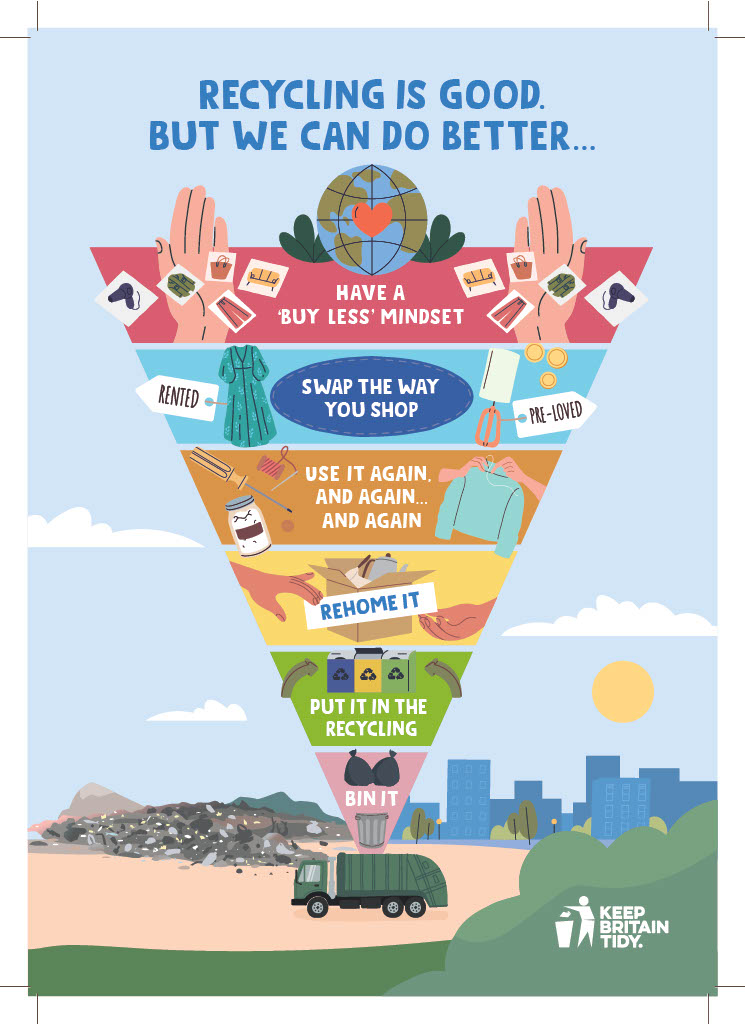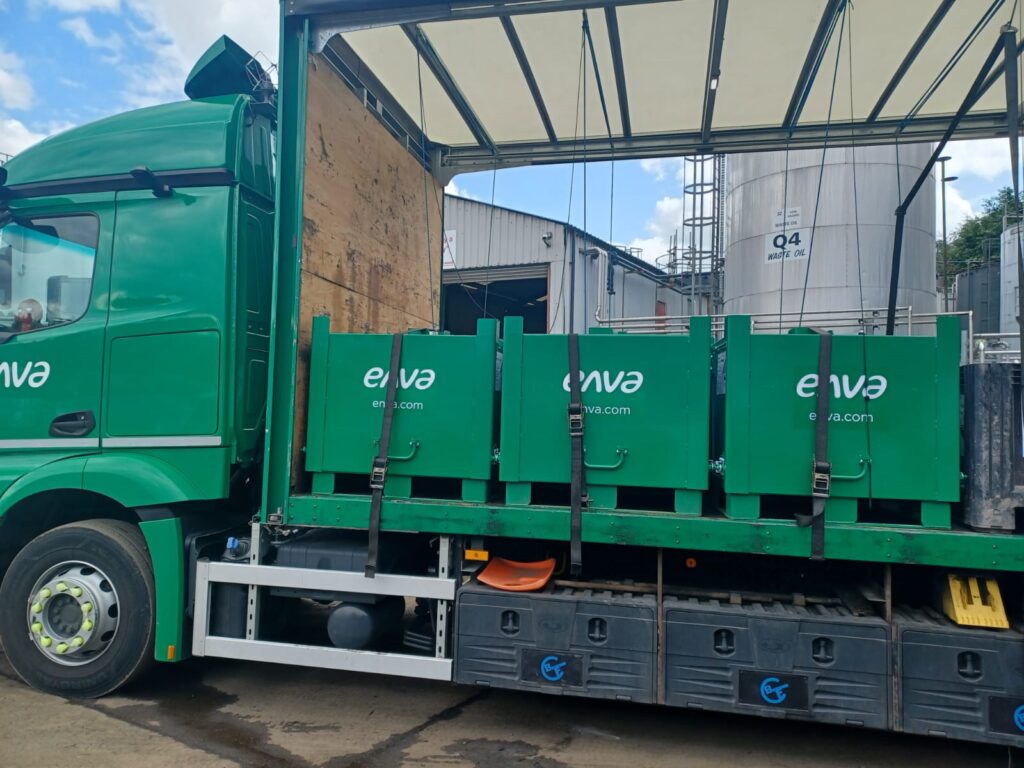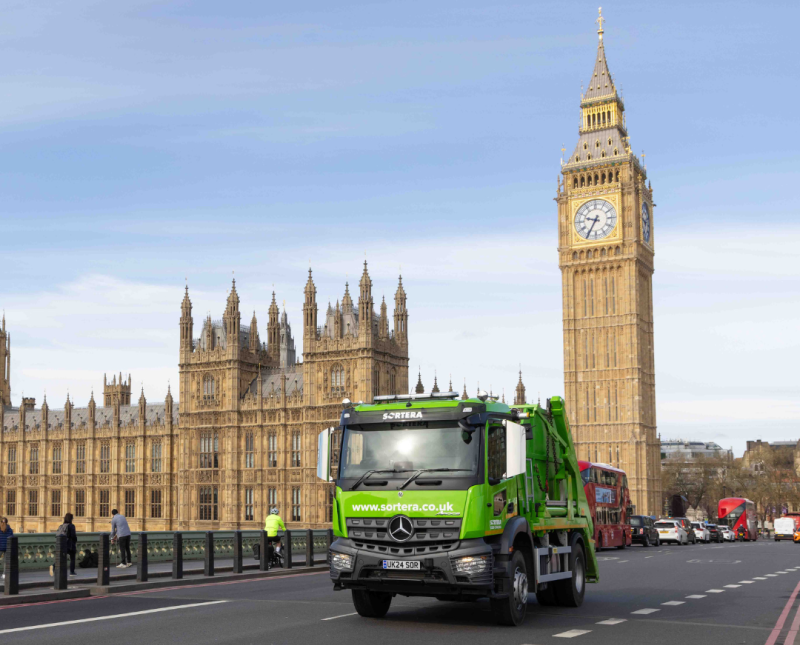The group say that this initiative aims to provide “fresh guidance” to the industry and the public, fostering effective communication on waste prevention and “expediting the UK’s shift towards a circular economy”.
The newly designed waste hierarchy promotes reuse and mindful shopping to encourage people to make the most out of their things.
Research conducted by the charity revealed that the public often defaults to recycling, unaware that it ranks as the third-best option after reducing and reusing (see letsrecycle.com story).
According to the research around 30% of individuals perceive the commonly used terms ‘Reduce, Reuse, Recycle’ as interchangeable.
The revamped hierarchy features “logically grouped” levels, detailed descriptors, and a “highly visual” format, incorporating images and symbols to suggest items and behaviours for consideration.
According to the charity’s research, 71% of participants found the new hierarchy clear in its instructions, 58% identified better ways to minimise their environmental footprint beyond recycling, and 51% felt motivated to contribute to planet protection.
Mindsets
Allison Ogden-Newton OBE, chief executive of Keep Britain Tidy said: “We have made a lot of progress by emphasising the recycling part of the waste hierarchy. But we can’t just recycle our way out of the climate emergency; we urgently need to shift mindsets and make reuse and consumption reduction a social norm.
“Embracing better, insight-led communications like this new waste hierarchy is an essential piece of the puzzle as it will have a significant bearing on how widely adopted reduce and reuse behaviour become. We urge practitioners across the industry to follow our new guidance and, vitally, to come together to tackle the issue.”
Strategies
Keep Britain Tidy released a report alongside its revamped hierarchy which recommends several strategies that address waste reduction.
One suggestion it makes is to “adapt to the current backdrop”, as it found that 71% of surveyed individuals express a desire for more information on waste reduction. To achieve this, the charity recommends that the industry collaborates and communicates consistently, aiming to cut through “the noise of high-budget consumer marketing campaigns”.
Another recommendation is to avoid using ‘catchall’ terms. Instead of relying on generic phrases like ‘Reduce, Reuse, Recycle,’ the report proposes highlighting specific behaviours, using everyday language, and guiding the public to rethink their purchasing decisions.
Framing
The report also underscores the importance of framing messages “effectively” in order to communicate messages to consumers successfully.
Additionally, acknowledging and celebrating existing efforts to reduce waste is suggested as a way to motivate positive behaviour.
Choosing the right messengers is identified as a crucial aspect of effective communication. Approximately 47% of the UK public prefers information on waste prevention from immediate social networks, friends, and family.
While the government plays a crucial role (32%), charities (41%), and local councils (38%) are also vital influencers.
The report stresses the need for transparent communication from multiple trusted sources, highlighting that community-level engagement through local groups and networks is essential.








Subscribe for free